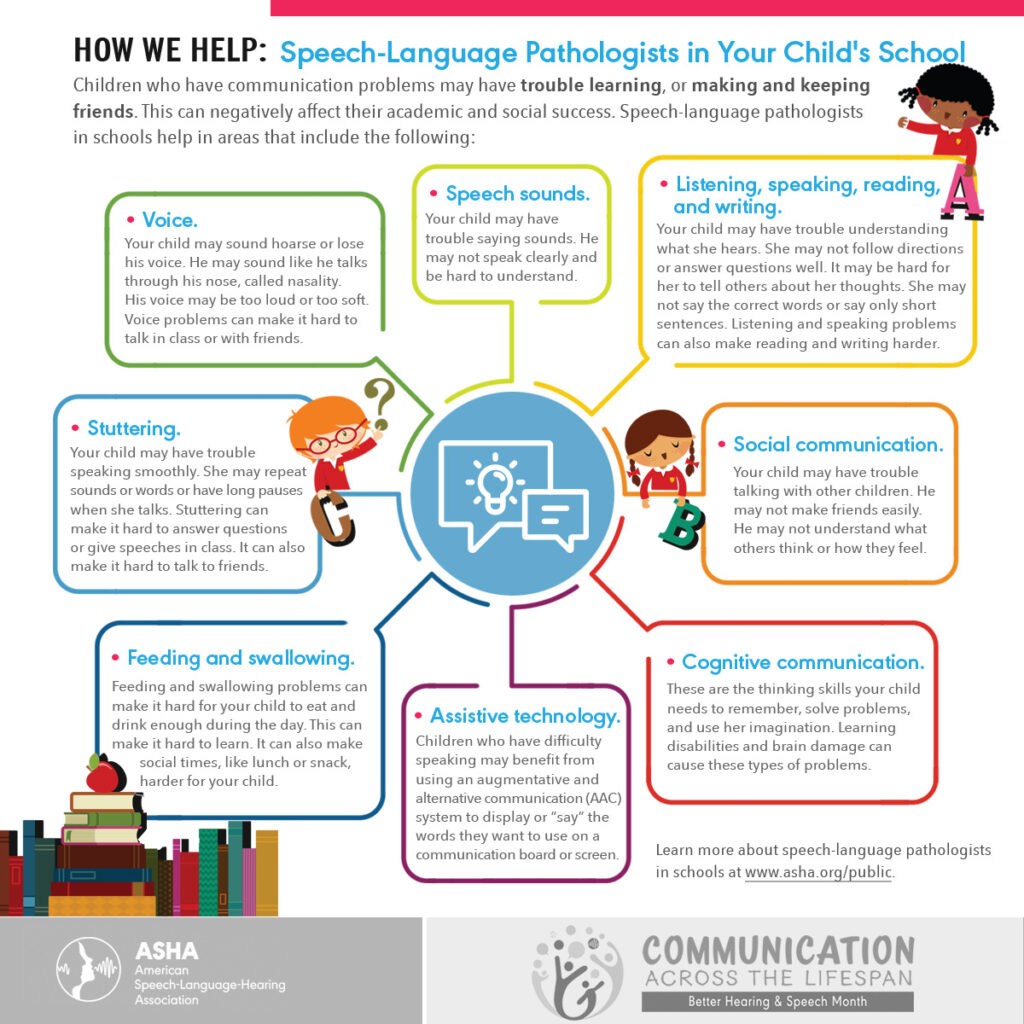
NEWS: May is Better Speech and Hearing Month
There are many ways that speech-language pathologists help children in schools. May was Better Hearing & Speech Month! As SLPs it is our job to advocate for speech therapy in an educational environment. When working in an academic setting, we target eight therapy domains including cognitive communication, social communication, speech sounds and more! The school environment is an opportunity to incorporate social or pragmatic goals as well. Many IEPs mandate individual and group sessions. In my opinion, group sessions are done best at school! During at home speech sessions, there is a lessened chance to integrate formal peer to peer social communication goals, but a school setting provides opportunities to address goals in a natural and authentic daily environment.
Did you know that speech-language pathologists who work in schools in New York must have a teaching license and must maintain it to legally practice? It is an additional certification called a T.S.S.L.D., which stands for “Teacher of Students with Speech and Language Disabilities”. This means that speech-language pathologists with a T.S.S.L.D. provide instructional education by integrating speech therapy practices into academics. Not all practicing speech pathologists in New York have their T.S.S.L.D. certification, so if you are a parent or administrator who would like a speech pathologist to come into a school, asking if the therapist if they have a T.S.S.L.D. is an important qualifying question!